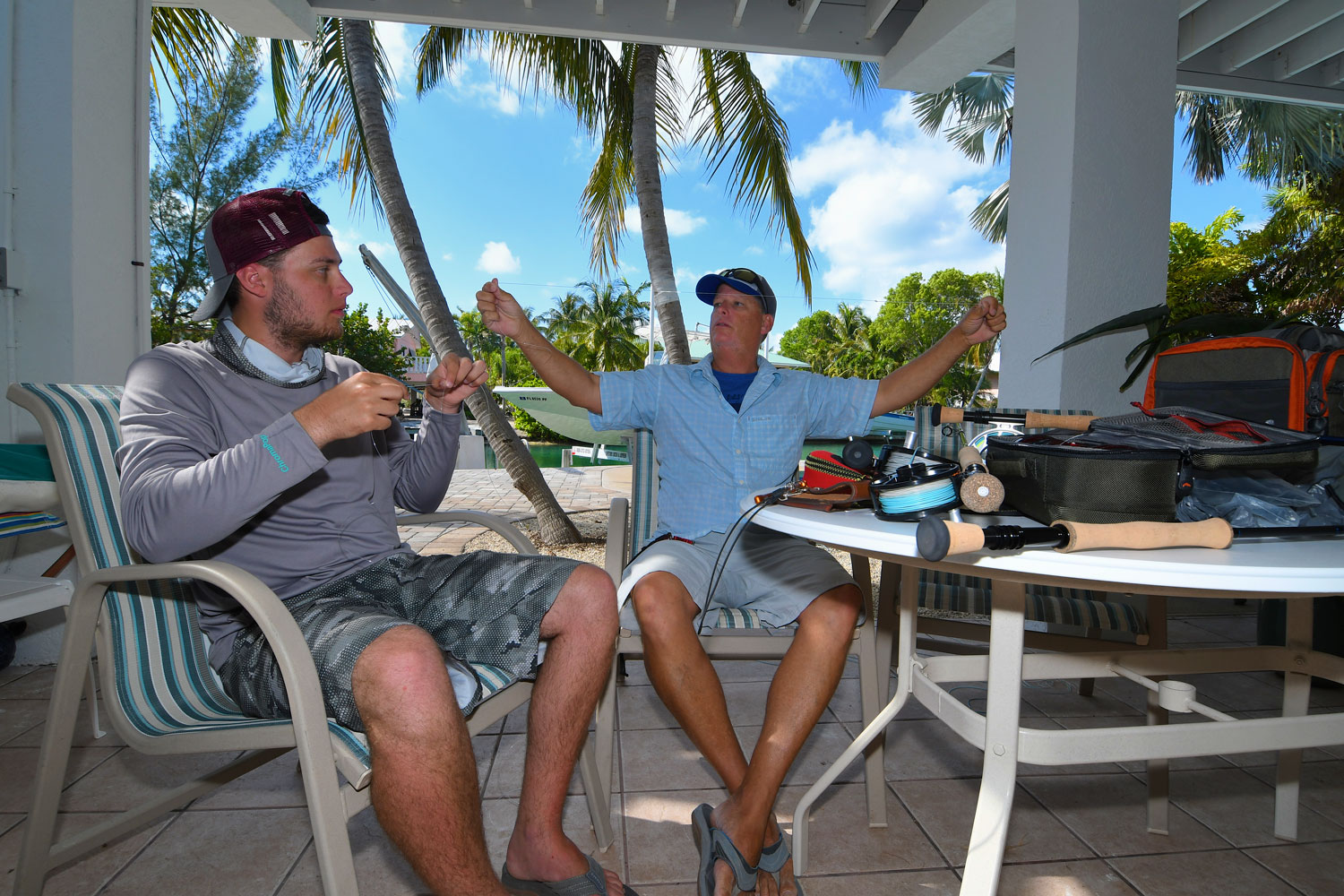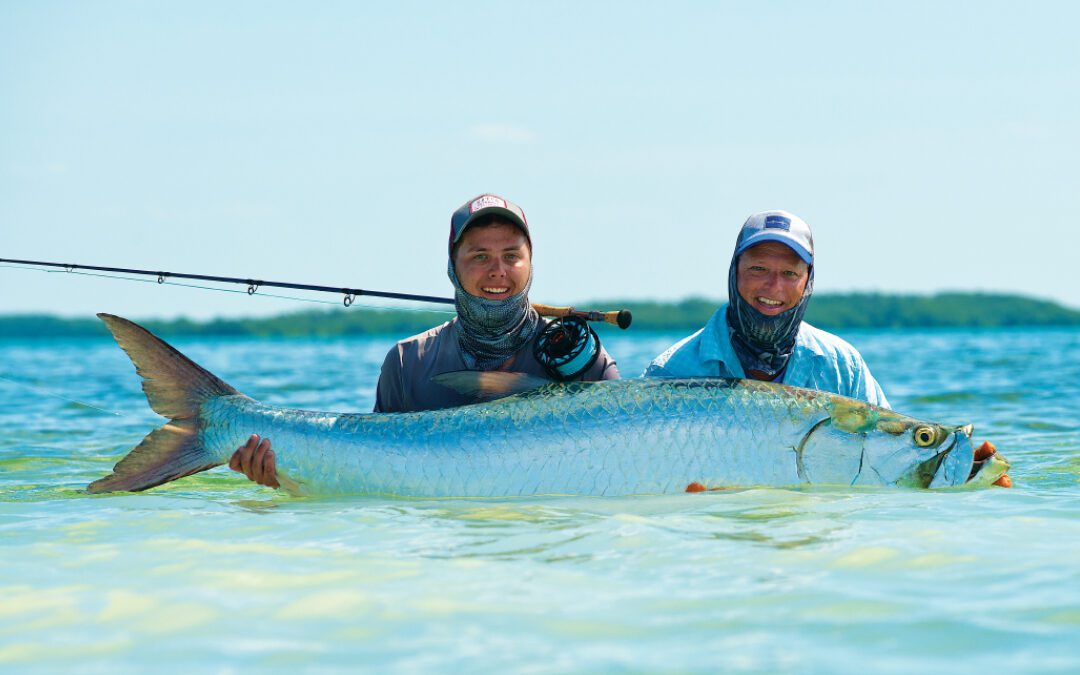There are many places to chase tarpon—Mexico’s Yucatan Peninsula and Ascension Bay, the Caribbean, Belize and various jungle rivers up and down Central America, the lower Gulf and Atlantic coasts, even some rivers in Africa. All encounters with these silver-plated monsters will leave you with memories that last a lifetime. But sooner or later, most roads lead to the Florida Keys.
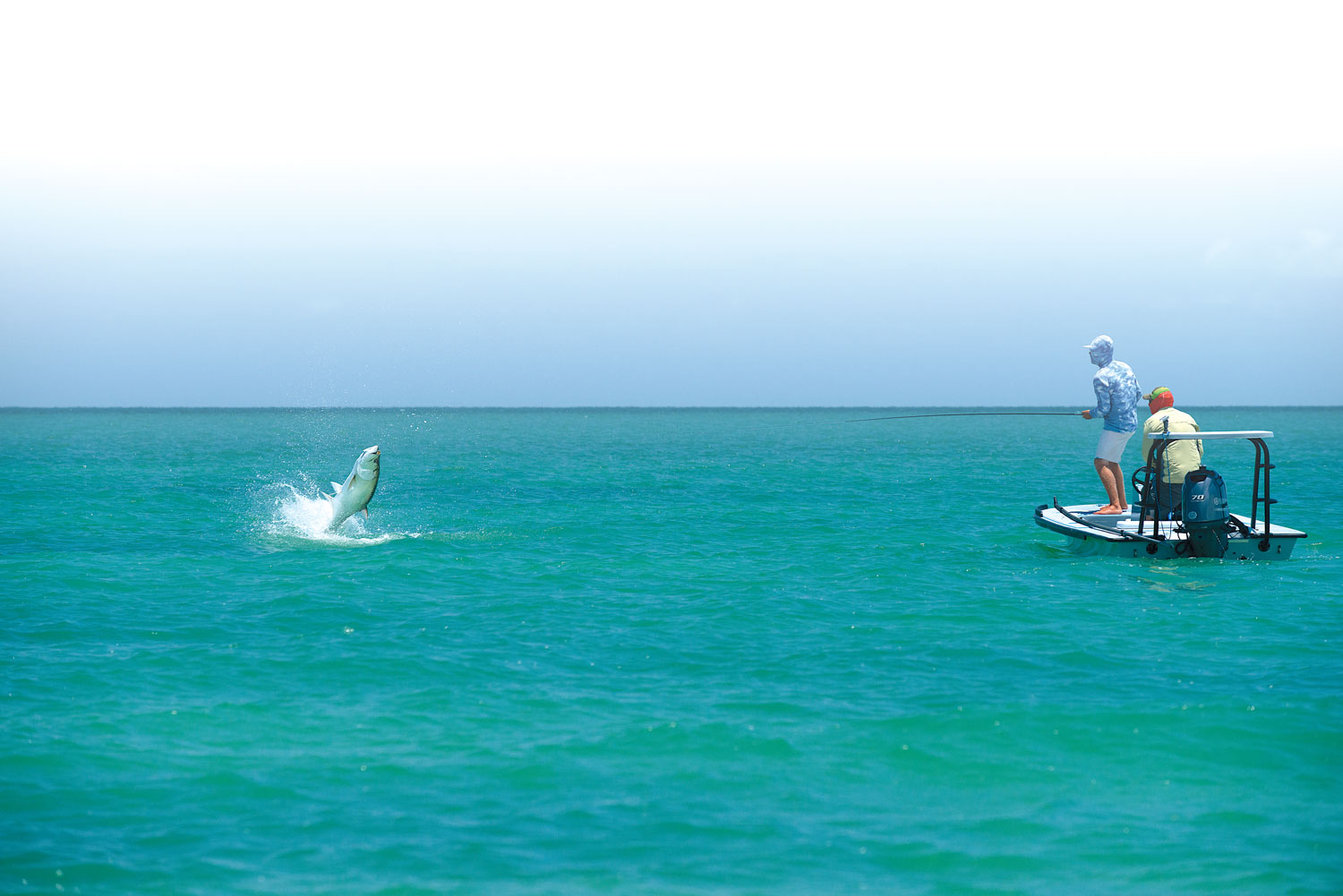
With tarpon, you typically spend a lot of time scanning the horizon for signs of fish. Sometime it’s a brief glimpse of a dorsal fin cresting the surface. Sometimes it’s the swirl of nervous water. Other times, it’s a full-blown frontal assault when a school of giant fish heads your way.
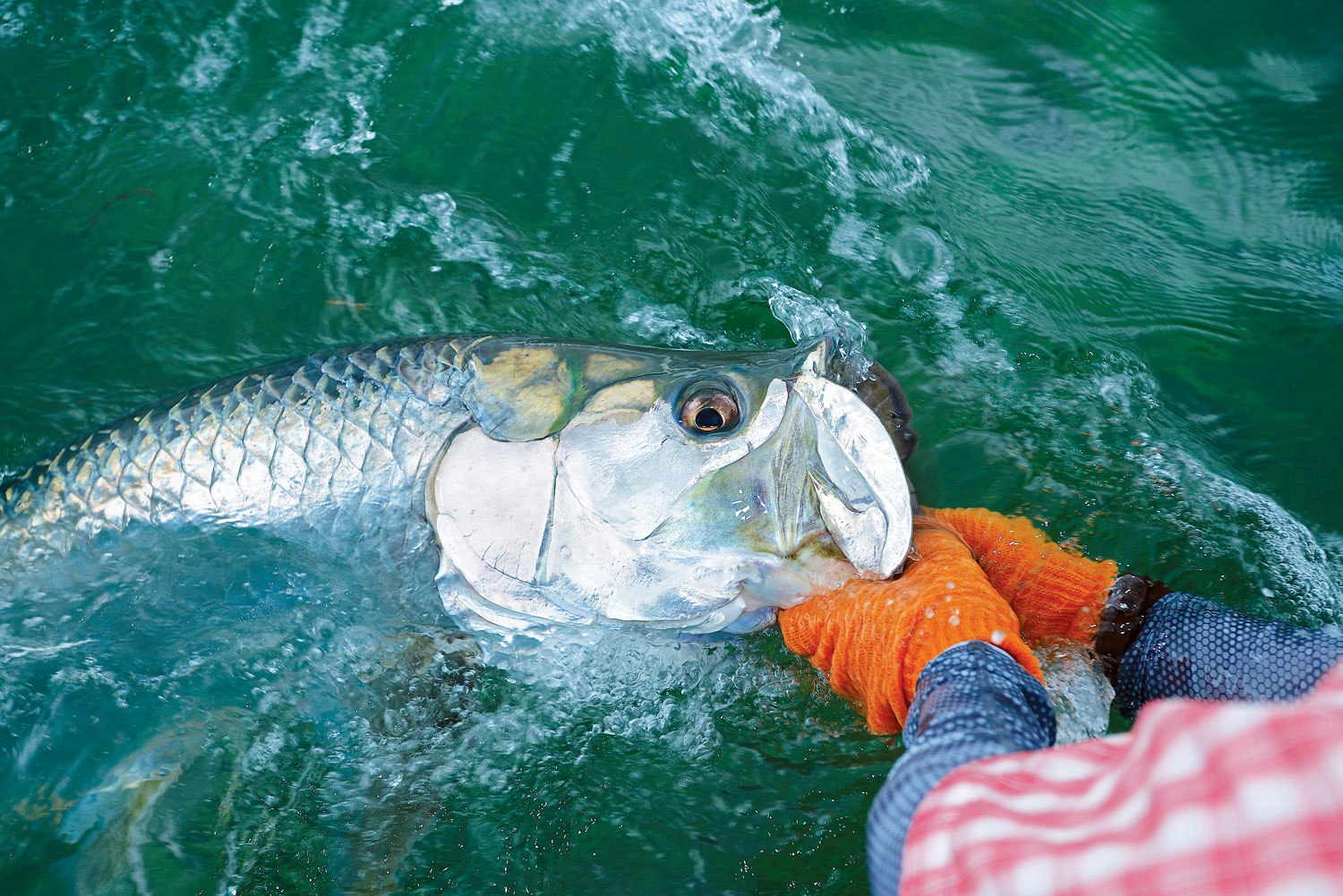
Preparation is the name of the game for those rare opportunities that finally present themselves. Rod and fly at the ready and with a bit of a prayer, you hope your cast slices through the wind and finds a place in front of a hungry fish. When it does, it’s time to set the hook and hold on for the ride.
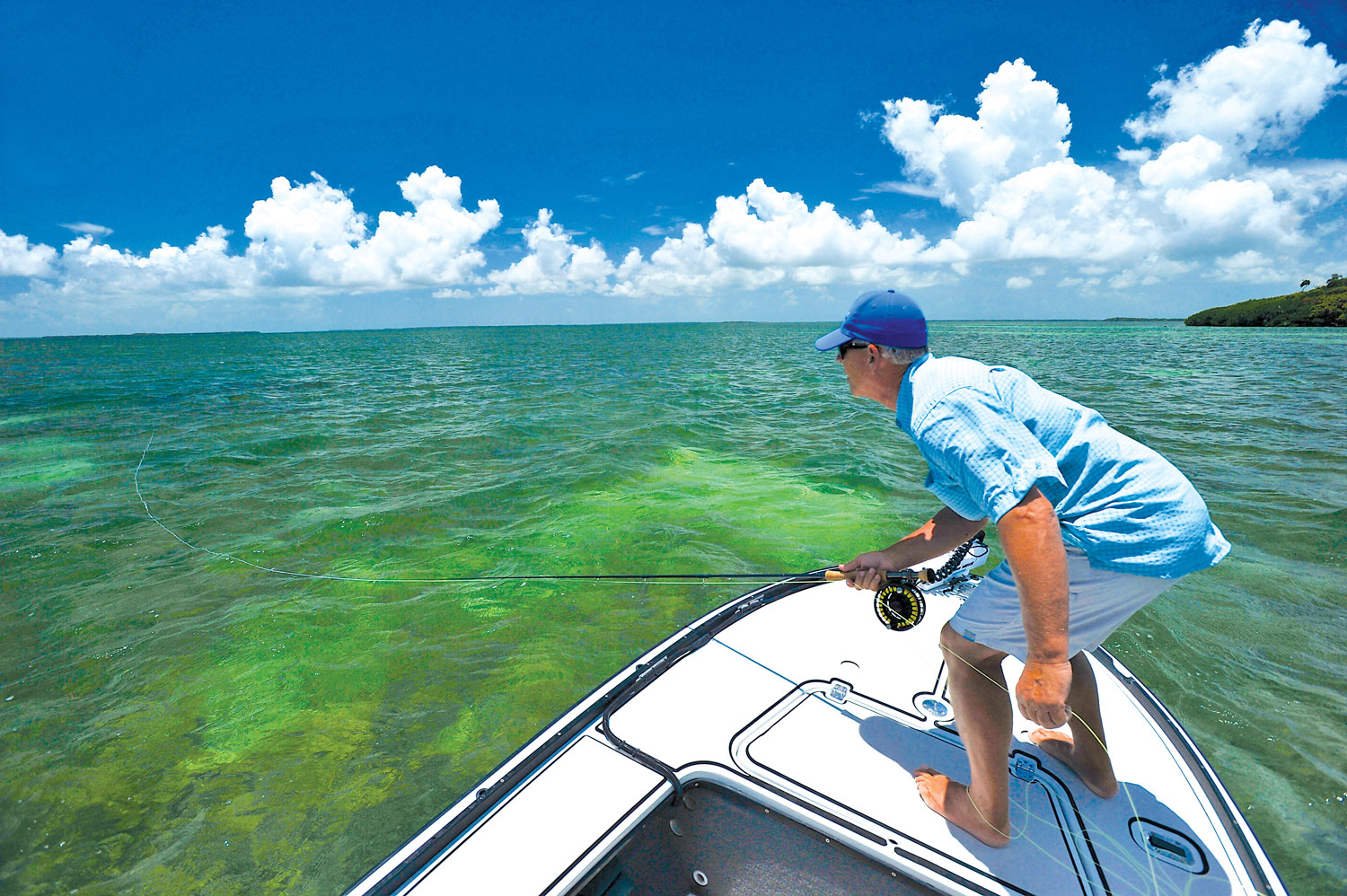
A tarpon of 50 pounds or more will usually wear you down before its fight is gone. The sight of these magnificent beasts jumping for the sky, gill plates audibly rattling, is never to be forgotten. Time and time again they launch in a fit of frenzied twisting and turning before crashing back to the surface. As often as not, the fish will throw the hook from its bony mouth, but when solidly hooked, you’re in for an extended battle.
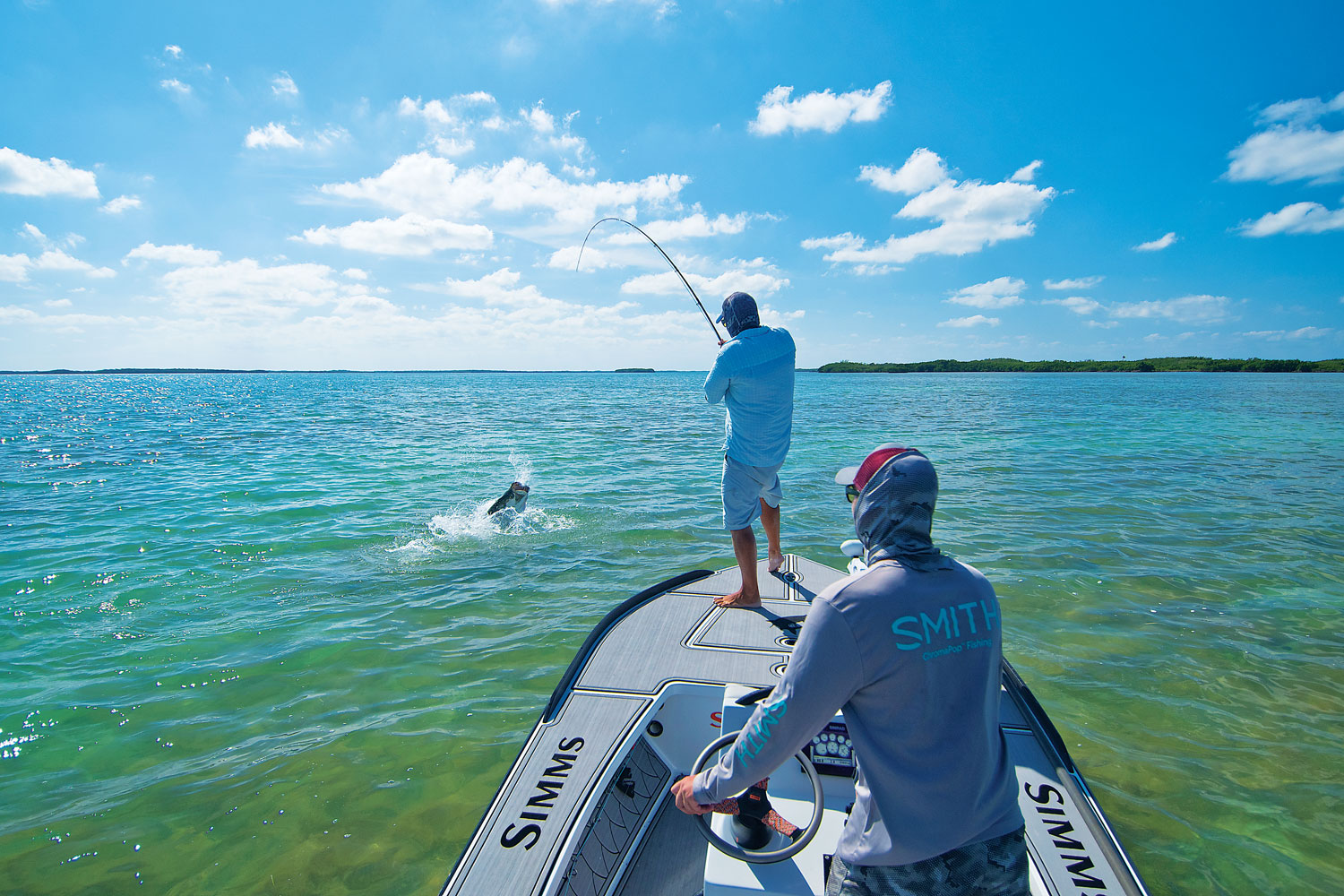
You don’t really land a tarpon as much as bring them to boat.
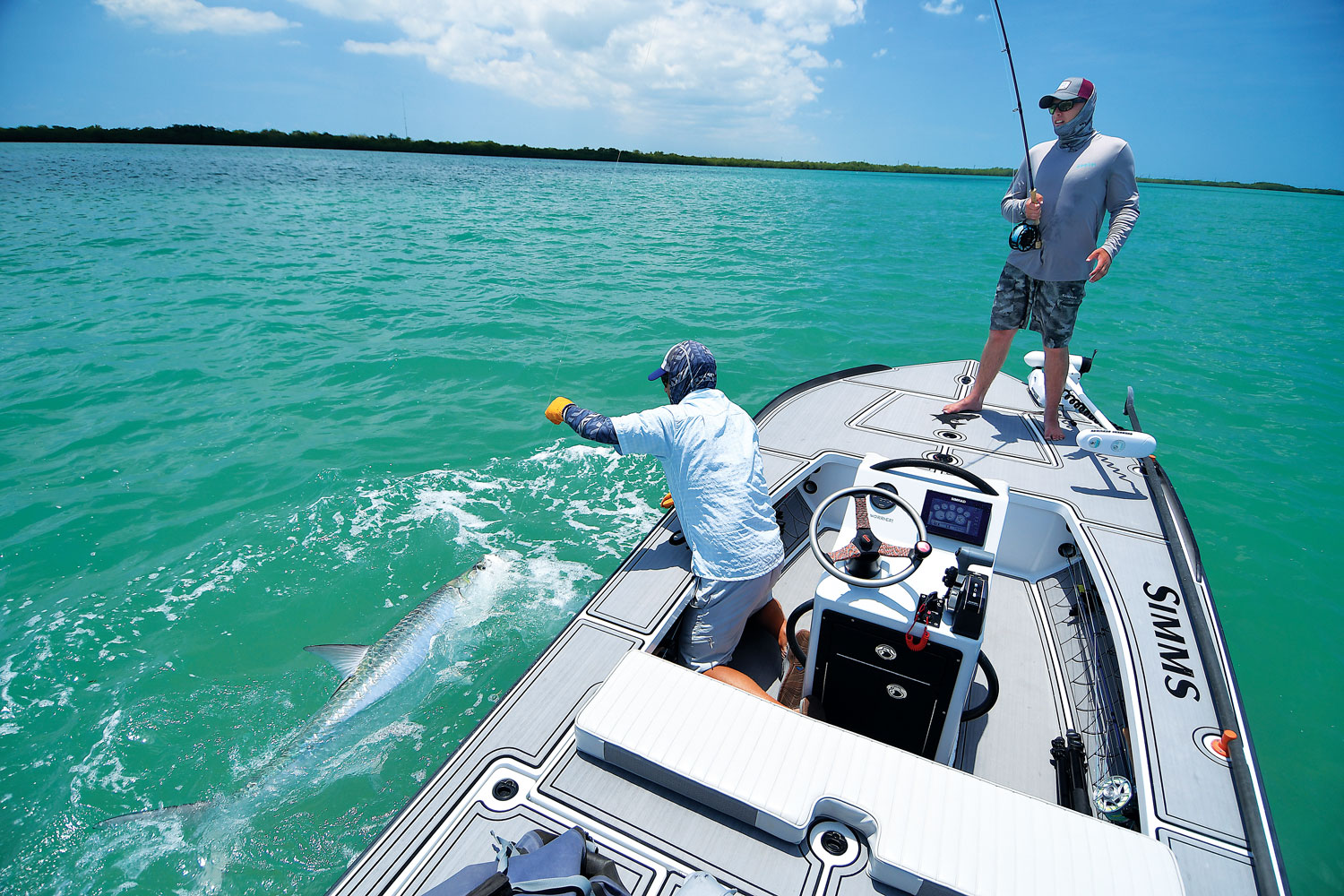
But once near, don’t be fooled into thinking they’re completely spent from their tail-walking acrobatics. To the very end, there’s usually something left in the tarpon tank—a last leap, heroic lunge or a violent head-shake. Many a fish has gained its freedom without being touched by human hands. Once alongside, the giant, aluminum-like scales and huge glassy eyes are what usually what grab your attention.
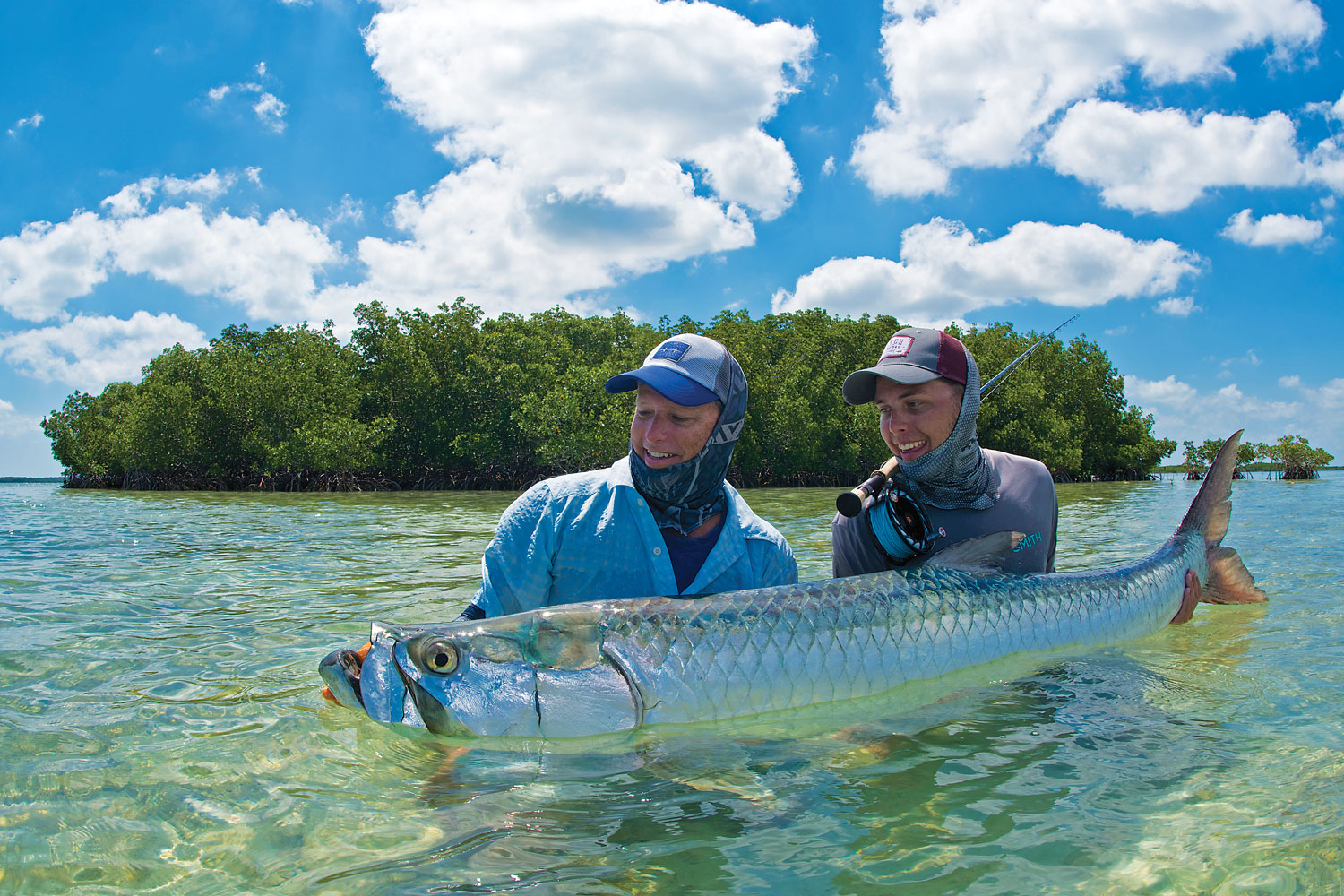
When finally released, most anglers are left with the palpable memory of touching, sometimes cradling, the largest fish they will ever be up close and personal with. Tarpon can be beaten but they’ll never be broken, as with most wild things.
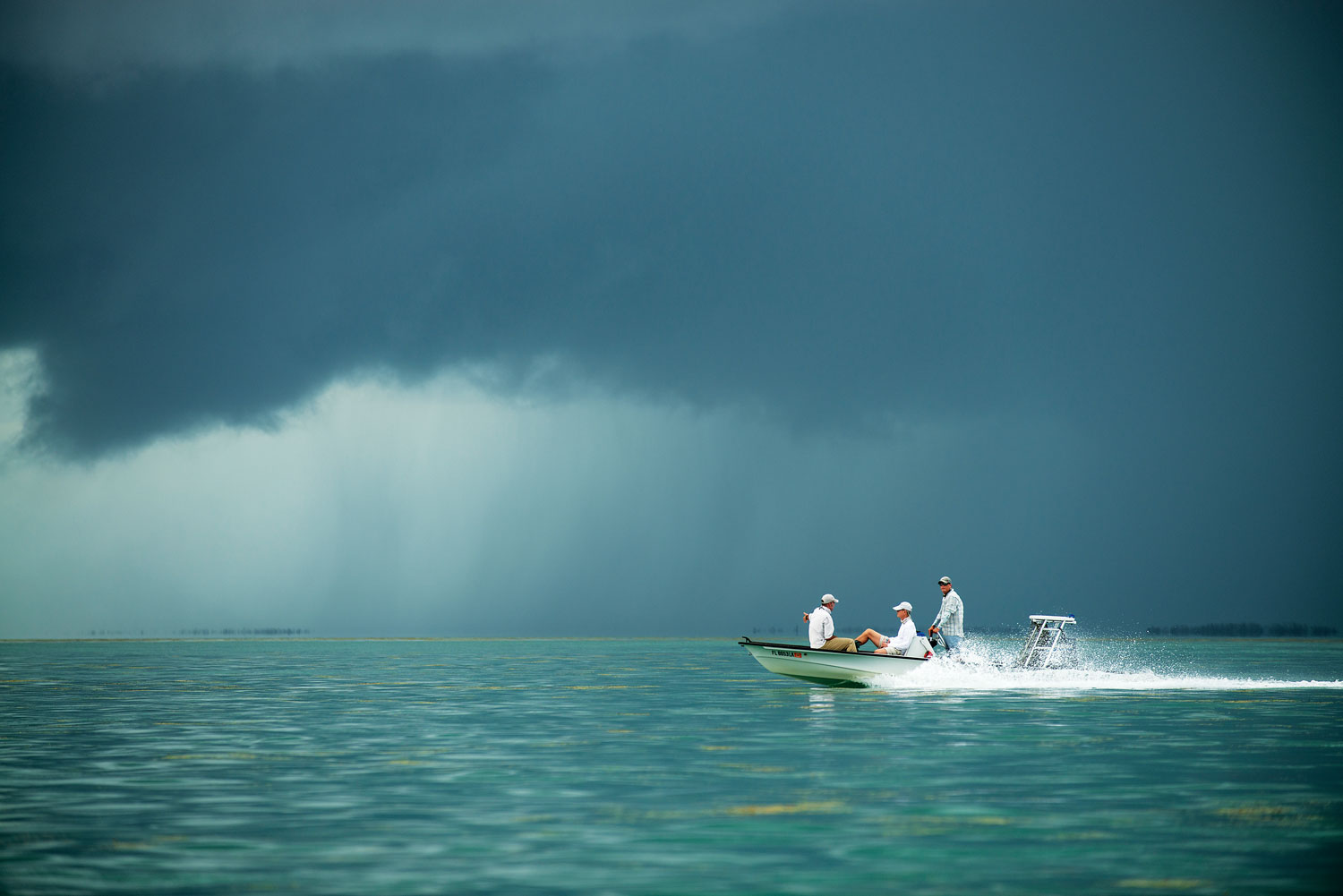
As with so many good things in life, the aches and strains that follow the fight are just the usual price to be paid. Tarpon are special to many fishermen—even an addiction to some—as you’ll discover back at the lodge with the telling and retelling of encounters with the silver ghost.
